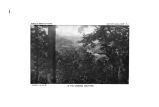| OCR Text |
Show MOONEY] HOSTILITY OF HIWAS8EE AND CHICKAMAUGA TOWNS 63 the strongly barred gate when Robertson, being awake inside, heard the noise and sprang up just in time to rouse the garrison and beat off the assailants, who continued to fire through the loopholes after they had been driven out of the fort. Only two Americans were killed, although the escape was a narrow one. 1 About three months later, on April 2, a large body of Cherokee approached the fort at Nashville ( then called Nashborough, or simply " the Bluff"), and by sending a decoy ahead succeeded in drawing a large part of the garrison into an ambush. It seemed that they would be cut off, as the Indians were between them and the fort, when those inside loosed the dogs, which rushed so furiously upon the Indians that the latter found work enough to defend themselves, and were finally forced to retire, carrying with them, however, five American scalps. 2 The attacks continued throughout this and the next year to such an extent that it seemed at one time as if the Cumberland settlements must be abandoned, but in June, 1783, commissioners from Virginia and North Carolina arranged a treaty near Nashville ( Nashborough) with chiefs of the Chickasaw, Cherokee, and Creeks. Tnis treaty, although it did not completely stop the Indian inroads, at least greatly diminished them. Thereafter the Chickasaw remained friendly, and only the Cherokee and Creeks continued to make trouble. 3 The valley towns on Hiwassee, as well as those of Chickamauga, seem to have continued hostile. In 1786 a large body of their warriors, led by the mixed- blood chief, John Watts, raided the new settlements in the vicinity of the present Knoxville, Tennessee. In retaliation Sevier again marched his volunteers across the mountain to the valley towns and destroyed three of them, killing a number of warriors; but he retired on learning that the Indians were gathering to give him battle. 4 In the spring of this year Agent Martin, stationed at Echota, had made a tour of inspection of the Cherokee towns and reported that they were generally friendly and anxious for peace, with the exception of the Chickamauga band, under Dragging- canoe, who, acting with the hostile Creeks and encouraged by the French and Spaniards, were making preparations to destroy the Cumberland settlements. Notwithstanding the friendly professions of the others, a party sent out to obtain satisfaction for the murder of four Cherokee by the Tennes-seeans had come back with fifteen white scalps, and sent word to Sevier that they wanted peace, but if the whites wanted war they would get it. 6 With lawless men on both sides it is evident that peace was in jeopardy. In August, in consequence of further killing and reprisals, commissioners of the new u state of Franklin," as Tennessee was now i Roosevelt, Winning of the West, n, p. 363,1889. * Ibid., p. 365, 1889: Ramsey, Tennessee, pp. 452- 454,1863. * Ibid., pp. 368- 366,1889. * Ibid., p. 341. 1863. * Martin letter of May 11, 1786, ibid., p. 342. |































































































































































































































































































































































































































